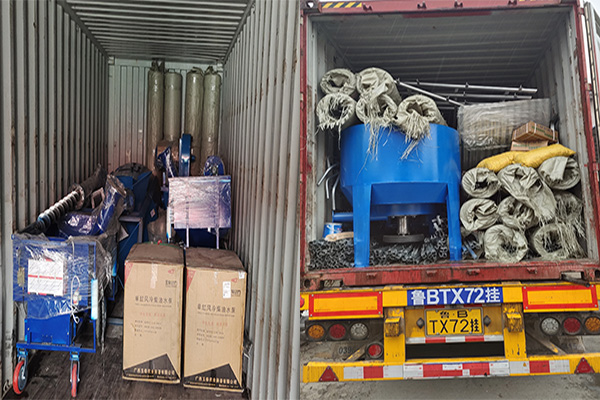Kenya Chicken Farm Automated Disinfection Equipment Recommendation
Time : 2025-04-24
As a chicken farmer in Kenya, you know that keeping your flock healthy is key to a successful operation. One of the most effective ways to maintain biosecurity on your farm is through the use of automated disinfection equipment. In this article, we’ll dive into what you need to consider when choosing the right equipment for your chicken farm, and we’ll recommend some of the best options available.
Understanding the Importance of Disinfection
First things first, let’s talk about why disinfection is so crucial. Chickens are susceptible to various diseases, and some can be transmitted through pathogens that thrive in dirty environments. By implementing an automated disinfection system, you’re not only protecting your chickens but also your employees and the general public.
Factors to Consider When Choosing Disinfection Equipment
1. Type of Disinfectant: Not all disinfectants are created equal. Some are more effective against certain pathogens than others. You need to choose a disinfectant that is effective against the specific diseases you’re most concerned about on your farm.
2. Coverage Area: The size of your chicken coop will determine the coverage area you need. You don’t want to invest in a system that’s too small for your farm.
3. Ease of Use: Think about how easy the equipment is to set up and use. You want a system that’s intuitive and doesn’t require extensive training.
4. Cost: Of course, the price is a significant factor. While you don’t want to skimp on quality, you also need to ensure that the investment fits within your budget.
5. Energy Consumption: Consider the energy requirements of the equipment. You want something that’s efficient and won’t significantly impact your electricity bill.
Recommended Automated Disinfection Equipment for Kenya Chicken Farms
1. The BioGARD® Disinfection Tunnel
– Why It’s Great: The BioGARD Disinfection Tunnel is a high-quality system that uses hydrogen peroxide vapor to disinfect. It’s effective against a wide range of pathogens and is easy to use.
– Price Range: Starts at $7,000.
2. The Disinfect-Air System by MAF Devices
– Why It’s Great: This system provides continuous disinfection by circulating air through a filter system that kills pathogens. It’s great for maintaining a clean environment throughout the day.
– Price Range: Approximately $4,000 to $5,000.
3. The ProDisinfection System by Pro-Tech Environmental
– Why It’s Great: This system uses a combination of UV light and hydrogen peroxide to disinfect. It’s highly effective and can be installed in various configurations to suit different farm sizes.
– Price Range: Varies based on configuration, starting at around $5,000.
4. The FarmBot Disinfection Unit
– Why It’s Great: The FarmBot is a robotic system that can be programmed to disinfect specific areas of your farm. It’s versatile and can be used for both routine disinfection and emergency treatments.
– Price Range: Starts at $8,000.
How to Implement Automated Disinfection on Your Farm
1. Assess Your Needs: Start by assessing the size of your chicken coop and the specific pathogens you need to protect against.
2. Consult with Experts: Reach out to agricultural extension offices or disinfection equipment suppliers for advice on the best system for your farm.
3. Training Your Staff: Ensure that your staff is properly trained on how to use the disinfection equipment safely and effectively.
4. Regular Maintenance: Schedule regular maintenance for your equipment to ensure it continues to work at peak performance.
Conclusion
Implementing automated disinfection equipment on your Kenya chicken farm is a smart move. Not only does it help keep your flock healthy, but it also protects your investment and ensures the quality of your produce. By considering the factors outlined above and choosing the right equipment for your farm, you’ll be well on your way to a cleaner, safer, and more productive chicken operation.
—












